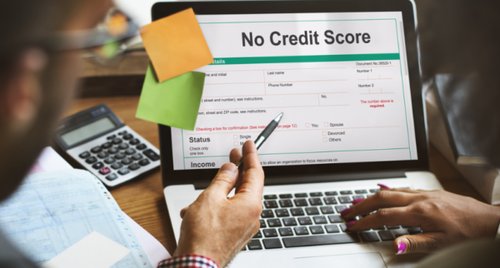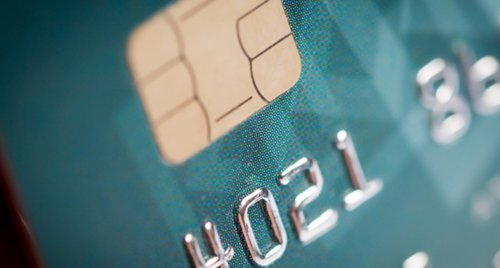There’s no sugarcoating it: A low credit score can be demoralizing, not to mention place a significant roadblock in the path to a successful financial future. But there is good news. It isn’t as difficult as you might think to start building credit.
The steps below offer options and strategies for how to start building credit. Keep in mind, this is not a step-by-step strategy where you have to do all of these credit building tactics, or even should. Think of these strategies as a buffet of options. Some will be easy to do; others may require a bit of work. Some will be practical for your situation; others won’t. But if you try at least one, and ideally multiple, you should see a measurable, positive impact on your credit score.
Check your credit reports and correct any errors
Keeping an eye on your credit reports is always a good idea. Blame it on social media and companies selling lists of clients to other companies or just the extent of digital lives these days, but when it comes to credit reports, things happen:
- You could have somebody else’s missed payments on your credit report.
- You could have old, paid debts listed as though you didn’t pay them off.
- You could have the same debt, listed two or three times (especially various debt collectors have owned it).
➤ LEARN MORE:5 common credit report errors and how to fix them
If the information on your credit report is extremely bad and inaccurate, fixing it could potentially send your credit score soaring. The more likely scenario is that just one or two items are inaccurate; even then, correcting those could rapidly improve your score.
Become an authorized user
Becoming an authorized user can help build your credit, or it may have a neutral effect, or it may actually hurt your credit. If you become an authorized user on another person’s credit card – for instance, your parent’s, or maybe your adult child if you’re trying to rehabilitate your credit – being an authorized user could help you establish a credit history or build your credit.
Two important points to keep in mind:
- Check to ensure the credit card issuer reports authorized user activity to the credit bureaus. If it doesn’t being an authorized user won’t impact your credit at all.
- Only agree to authorized user status for a person whom you trust to responsibly and consistently pay their bill. If the primary cardholder runs up huge debts and doesn’t pay them off, being an authorized user could actually hurt your credit.
➤ LEARN MORE:Guide to adding authorized users to your credit card
As an authorized user, you aren’t ultimately responsible for the items you charge to the credit card, but certainly your relationship with the primary cardholder could suffer if you’re irresponsible. Likewise, if the person paying off this credit card misses payments, pays late or otherwise handles the card irresponsibly, their black marks could appear on your credit report and will likely lower your credit score. So, again, this isn’t a sure-fire credit building strategy.
Pay off any existing debt as soon as possible
This, however, is a sure-fire way to start building credit. Of course, anyone reading this, if you have a lot of debt, you’re thinking, “Gee, THANKS. Now why didn’t I think of THAT?”
Yes, it’s obvious advice, and, yes, paying off debt can be extremely difficult. It can take some people years. But paying off debt is the holy grail when it comes to building credit. We couldn’t not mention paying down debt as a strategy for raising your credit score.
To make paying off your debt simpler and perhaps less expensive, consider these options:
- Consolidate debt with a personal loan. If you can qualify for a personal loan with a lower interest rate than that on the other debts you’re carrying, it can save you money to take out the loan and pay off those other debts with it.
- Utilize a balance transfer credit card offer. Balance transfer credit cards are rare for people with fair and lower credit, but they are out there, particularly if you check with credit unions and smaller banks. If you’re working to pay off credit card debt, a solid balance transfer offer could save your a lot of money and effort.
Also, keep in mind that your credit score can increase even while paying down your debts. Simply paying your bills on time and spending within your means work in your credit’s favor.
Open a credit card
Just as too much debt can bring down a credit score, not enough debt – or, more accurately, not enough access to credit – can hurt a credit score. Lenders like seeing potential borrowers have a history of borrowing and doing it successfully. Whether it’s a student credit card (you’re in college and just getting started with credit), or a secured credit card (a solid option for building or rebuilding credit and we’ll discuss it more below) or just a traditional credit card, getting a new one offers a path to start building credit. There are a couple of key reasons this happens:
- You improve your credit utilization. Lenders want to see low credit utilization, which is the ratio you’re borrowing in relation to the amount of credit you have access to. If you have a $10,000 limit on one credit card and you carry a $1,000 balance, you have 10% credit utilization. The recommendation is to keep that percentage under 30%, but the lower the better.
- You have the opportunity to show responsible use of revolving credit. The best credit histories show a variety of credit types, both revolving and installment. Credit cards are revolving credit, so they add a new layer to your credit history.
- You can show responsible payment history. Consistently paying your bills on time is one of the most important things you can do to improve your credit; therefore, paying a credit card statement balance on time is another opportunity to show that.
Consider a credit builder loan
These are loans that some banks and credit unions offer. Some come with additional fees, so check the fine print carefully, but many provide excellent terms allowing people to build credit without entering into a traditional loan/debt situation.
Credit builder loans basically work like this: If your bank offers you a $1,000 credit builder loan, you will eventually receive $1,000, but you’ll pay for it before you receive the money. Over the course of the loan, you will make regular payments into the account and, once you’ve fulfilled the terms of the loan, you receive access to the full amount.
By the end, you’ve paid your bank $1,000 plus maybe some fees or interest. But you also have $1,000 (plus maybe a little more, from interest, if the loan is set up that way) that is yours to use however you want – no paying it back, since you’ve already done that. Along the way, the lender will have reported your responsible payment to the credit bureaus, which in turn can start building your credit.
BONUS TIP!
You would expect something marketed as a “credit builder loan” to come from a lender that will report account activity to the three bureaus. But it never hurts to ask. Ensure your lender will report your payment, so you know your good habits will pay off.
Use a service that includes utilities, etc. payments in your credit report
Unfortunately, responsible payments of regular bills like utilities and rent don’t typically help with building your credit score. That is unless you take advantage of one of the serveral services that promises to include those payments on your credit report.
One such service is Experian Boost. With this service, Experian Boost connects to your bank and credit card accounts to search for bills you regularly pay but aren’t already reported to the credit bureaus. (Generally, that means streaming bills, utility and cellphone bills.) According to Experian, the process takes about five minutes, and you should see an improvement with your credit score, immediately.
Take out a loan
This is kind of a DIY version of a “credit building” loan. You take out a loan and pay it back responsibly and promptly.
Lenders like seeing that you can borrow and successfully pay back a loan Paying back loans is a good way to establish a strong credit history, and it will lead to a better, healthier credit score. And as noted earlier, if lenders know you are a trustworthy borrower, they are more likely to want to lend you more money.
Obviously, only borrow money you can afford to pay back, taking into account any additional interest payments you’ll accrue. Since you’re credit isn’t excellent, your interest rate will likely be on the higher end. In the end, this option requires a lot of planning and thoughtfulness, not to mention will likely cost you something. Enter into this situation with a clear plan.
Pay all your bills on time, every time
Yes, it’s a boring solution to building credit, but it is the single most important. In a way, paying your bills on time won’t build your credit so much as ensure your credit score doesn’t go down; missed payments and late payments will throttle your credit score. There are a lot of bills that you’re paying that you don’t get credit for paying on time by the credit bureaus (remember those utility and cellphone bills mentioned above), but if you pay them late or not at all, you can be sure those credit bureaus will hear about it.
All that said, paying your bills on time, every time, does help build your credit. By paying bills on time over the years, you construct a healthy credit report. Lenders like seeing that your credit report doesn’t have a lot, or any, missed and late payments.
To reiterate, paying your bills on time is the most important credit building strategy there is. It’s non-exciting, and it won’t help you raise your credit score quickly, but if you’re doing all of the other credit building strategies on this list but not paying your bills on time, your credit score will likely plummet.
Get a secured credit card
Yes, we mentioned this earlier, but let’s go more in depth. If your credit is bad, you may want to consider applying for a secured credit card to start building credit. How do secured credit cards work? To establish your credit line, you provide a security deposit that the lender holds until you close your account or graduate to a traditional card. Your credit line is usually equal to the security deposit.
The idea is that if you use the credit card successfully (that is, you pay back anything you borrow on time), you’ll graduate to an unsecured credit card. The bank will then return your security deposit to you. Using a secured credit card successfully should cause your credit score to climb. Maybe by a lot. Many factors go into how much, or little, a credit score changes. But using a secured credit card successfully will almost certainly build your credit..
Request a higher credit limit
We’ll end with this credit building strategy since it seems counterintuitive and shows how surreal the world of credit scores and credit reports can be.
You can request a higher credit limit and see your credit score go up.
Now, that’s not guaranteed. You could request a higher credit limit and be turned down (that should have no effect on your credit score, however). Or you could request a higher credit limit, be granted one, and then spend so recklessly that you bring down your credit score.
But if you request a higher credit limit – and do not borrow more money on the credit card – that can improve your credit score.
Why does requesting a higher credit limit and not borrowing more money potentially improve your credit score? Because of that credit utilization ratio we mentioned earlier. Lenders want to see borrowers who have a lot of credit available, but who aren’t using much of it. (Again, the ideal is to borrow less than 30% of the money you could borrow. If you can keep it under 10%, lenders like that even more.)
So keep your utilization low, but don’t always stay at 0%. Lenders can’t learn much from your inaction. They can’t judget your odds of paying loans back if you one day do decide to borrow money.
ON THIS PAGE
- Check your credit reports and correct any errors
- Become an authorized user
- Pay off any existing debt as soon as possible
- Open a credit card
- Consider a credit builder loan
- Use a service that includes utilities, etc. payments in your credit report
- Take out a loan
- Pay all your bills on time, every time
- Get a secured credit card
- Request a higher credit limit


